Politics
Japan’s ruling party elects Shigeru Ishiba as new prime minister
Published
7 months agoon
By
Ekwutos BlogStory by Michelle Lee, Julia Mio Inuma
Ishiba, 67, on Friday clinched the leadership of the ruling Liberal Democratic Party — on his fifth attempt — and will therefore become the new prime minister. He will succeed Fumio Kishida, who reshaped Japan’s role in the international community but last month announced he would step down amid record-low approval ratings.
The former defense minister will have to contend with pronounced international volatility: The Asia-Pacific region is being reshaped by the rise of China, and the United States might soon reelect Donald Trump, who questioned the value of security allies such as Japan during his first term as president.
Trump’s potential return has many Japanese policymakers and analysts on edge about what it would mean for America’s most important ally in Asia that also depends on Washington for its national security. During Trump’s first term, then-Prime Minister Shinzo Abe forged a close relationship with the U.S. leader through flattery and golf outings. But Abe was assassinated in 2022, and Japan no longer has a similar conduit it can rely on to manage Trump’s personality.
Japan is also grappling with increasing security threats and risk of war in the region, with Russia’s invasion of Ukraine, North Korea’s nuclear ambitions and China’s growing military threats. Just this week, China test-fired an intercontinental ballistic missile into the Pacific Ocean, its first such test in decades. Japan later said it had received no notice of the launch.
While he does not question the importance of Japan’s security alliance with the United States, Ishiba has said Tokyo needs to play a greater role in the alliance and have more say in how American troops are deployed in Japan. He wrote in his 2024 memoir that “Japan is still not a truly independent country” because of the “asymmetry” of Japan’s dependence on America for its security.
His blunt assessment is a break from his predecessor Kishida, who skewed closer to Washington and built deeper relationships with other U.S. allies in the Asia-Pacific region, including South Korea and the Philippines, as a counter to China.
Ishiba, on the other hand, has called for deeper engagement and more diplomacy with China, rather than the vilification of Beijing. He has criticized Kishida’s oft-repeated phrase used to rally like-minded countries against China after the Russian invasion: “Ukraine today may be East Asia tomorrow.”
Ishiba wrote in his memoir that conflating the Russian invasion of Ukraine with a feared Chinese attack on Taiwan is driven by emotion, not a pragmatic assessment of Chinese threats and the impact on Japan.
He is a strong backer of Taiwanese democracy and has proposed creating an “Asian NATO” to counter security threats from China and North Korea.
Analysts say Ishiba has shown his expertise in issues of foreign policy and defense, but the idea of an Asian version of NATO has drawn skepticismfrom many observers in Washington.
“He’s come up with — some would say bold, others would say interesting — ideas about Japan’s security arrangements,” said Shihoko Goto, director of the Indo-Pacific Program at the Wilson Center in Washington. “His idea about collective defense in the region has been particularly noteworthy. How he’s going to accomplish it is another question.”
In recent weeks, Ishiba emerged as one of three front-runners in a crowded race for the premiership, with a record nine candidates in contention.
The nail-biter election consisted of two rounds. In the first round, the party’s 368 members in the national legislature and 368 rank-and-file members cast their ballots. Then in the second runoff round between the top two candidates, 415 votes were cast — 368 from the LDP members in the legislature and one vote from the local LDP chapter in each of Japan’s 47 prefectures.
Ishiba came in second after economic security minister Sanae Takaichi in the first round, but he beat Takaichi in the runoff by 21 votes.
“An LDP with a free and vigorous debate, an LDP that is fair and just, an LDP that is humble: I want to go back to that time again,” Ishiba said after his victory. “We will believe in the people, speak the truth with courage and sincerity, and do everything in our power to make Japan a safe and secure country where everyone can once again smile.”
He will be officially announced as prime minister at a special legislative session on Tuesday.
A majority of Japanese voters say they are eager for new faces and new ideas, according to polls, but the candidates mostly offered more of the same in the world of Japanese politics, where men, people over 50 and hereditary politicians have long called the shots. Only two of the nine candidates for LDP leader were women, only two contenders were under 60, and more than half inherited their fathers’ legislative district seats.
Ishiba will take over as trust in his party and Japanese leadership is at an all-time low because of a string of corruption scandals that plagued Kishida’s tenure.

Japan’s Prime Minister Fumio Kishida wraps up a news conference in Tokyo on Aug. 14, in which he announced that he would not seek reelection.
© Philip Fong/AFP/Getty Images
Addressing the challenges, Ishiba has said the LDP “needs to make a proper explanation to the people” of its decisions, “and that explanation needs to be accepted by the people.”
The veteran politician is known for being a thorn inside the party because he has publicly criticized and opposed its elder statesmen, and was the top choice among LDP supporters who want to see the new leader clean up dirty politics, polls show.
Still, the new leader will face a big challenge to convince the public that the party is headed in a brand new direction, said Shiro Sakaiya, Japanese politics professor at the University of Tokyo’s Graduate Schools for Law and Politics.
“Regardless of who becomes the next leader, I don’t think the issues [with the LDP] will drastically be resolved,” Sakaiya said before the results were out.
Ishiba will also face a challenging economic landscape after Kishida’s lackluster efforts to jump-start the economy: a weakening yen, inflation, growing national debt and wage stagnation.
Mireya Solis, Knight Chair in Japan Studies at the Brookings Institution in Washington, said the new prime minister would have to put forward a convincing economic platform to win back support for the LDP.
“I don’t believe the Japanese public feels that their standards of living are secure and stable and they have a bright future. So I think that they’re paying attention to that,” she said.
The son of a former cabinet minister, Ishiba entered politics after his father’s death. He is open about his Christianity, which is rare among Japanese politicians, who tend to keep their religious views private.
For decades, Ishiba was known to take contrarian views within the LDP — most notably, as a critic of former prime minister Abe, Japan’s longest-serving prime minister and senior statesman in the LDP.
When dozens of LDP lawmakers became embroiled in a political funding scandal, Ishiba suggested Kishida resign to take responsibility — which drew backlash from his fellow colleagues. Kishida eventually did resign in part because of the plummeting public support for his leadership in the aftermath of those scandals.
Polls show he is popular with the public because of his willingness to criticize his party and its elders — but he is largely disliked among his colleagues for the same reason.
A native of Tottori, Japan’s least populated prefecture, he has been a longtime advocate of rural revitalization. He is pledging to stimulate economic growth by creating economic opportunities outside of the overconcentrated capital of Tokyo.
You may like


BREAKING! India Orders All Pakistani Citizens To Leave Country


State Pension inheritance rule can boost payments by more than £5,000 – see if you qualify
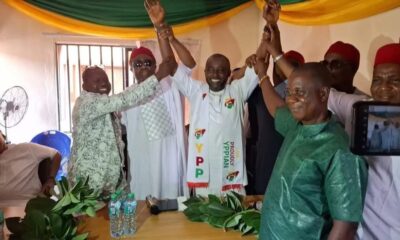

Governorship Candidate of the Young Progressives Party (YPP) in Anambra State, Sir Paul Chukwuma has nominated Chief Uzuegbunam Okagbue, the former Chief Protocol Officer and Deputy Chief of Staff to former Gov. Willie Obiano as his running mate in the November 8, 2025 Anambra governorship election
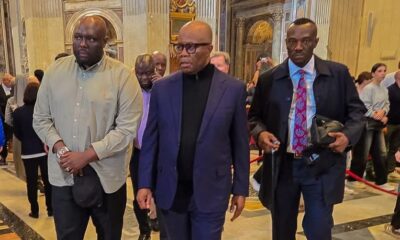

Tinubu’s Delegates Arrives vatican, led delegation to the Lying-in-State of Pope Francis
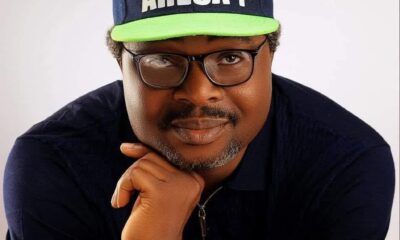

Damagum: Wike’s aide blasts Ugochinyere for asking PDP to expel FCT Minister, Anyanwu
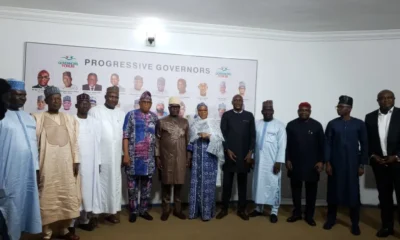

Tinubu’s reforms yielding positive results – APC State commissioners
Politics
Governorship Candidate of the Young Progressives Party (YPP) in Anambra State, Sir Paul Chukwuma has nominated Chief Uzuegbunam Okagbue, the former Chief Protocol Officer and Deputy Chief of Staff to former Gov. Willie Obiano as his running mate in the November 8, 2025 Anambra governorship election
Published
5 hours agoon
April 25, 2025By
Ekwutos Blog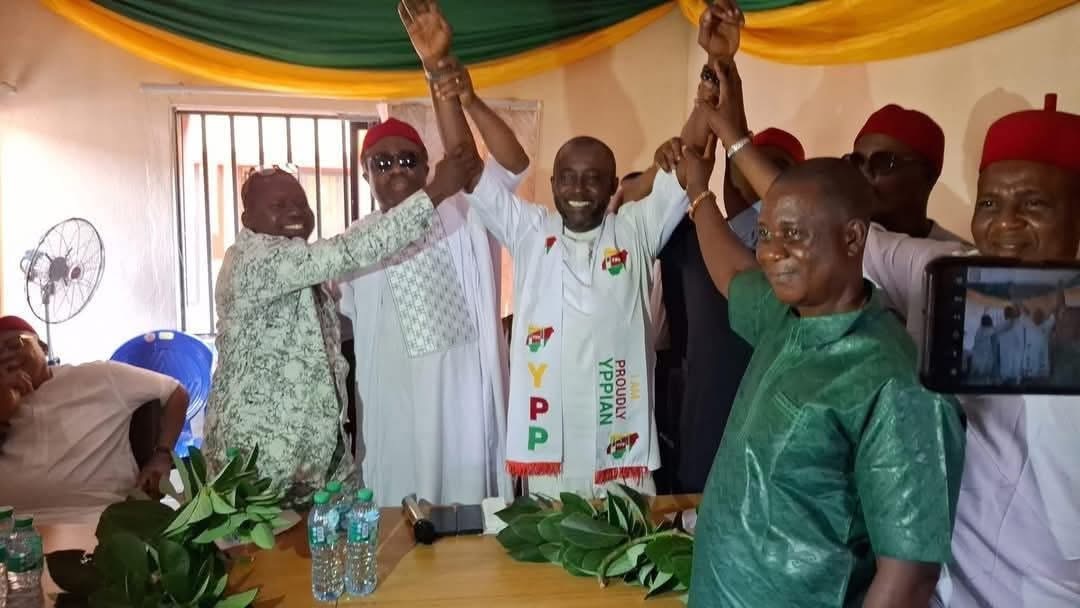
Sir Paul Chukwuma, the governorship candidate of the Young Progressives Party (YPP) in Anambra State, has unveiled Hon. Uzo Okagbue as his running mate for the November 8, 2025, governorship election. Okagbue, a former Chief Protocol Officer to Governor Willie Obiano, brings valuable experience to the ticket.
Running Mate Background : Okagbue hails from Umonachi community, Dunukofia Local Government Area, and has previously served under former Governor Obiano.
Chukwuma’s Confidence: The YPP candidate expressed confidence in Okagbue’s ability to help the party win the election, citing his grassroots mobilization strategies.
Okagbue’s Promise: The newly unveiled running mate promised to utilize his political strategy to secure a YPP victory on November 8, with the aim of governing the state from March 17, 2026.
This development sets the stage for an interesting election season in Anambra State.
Politics
Damagum: Wike’s aide blasts Ugochinyere for asking PDP to expel FCT Minister, Anyanwu
Published
5 hours agoon
April 25, 2025By
Ekwutos Blog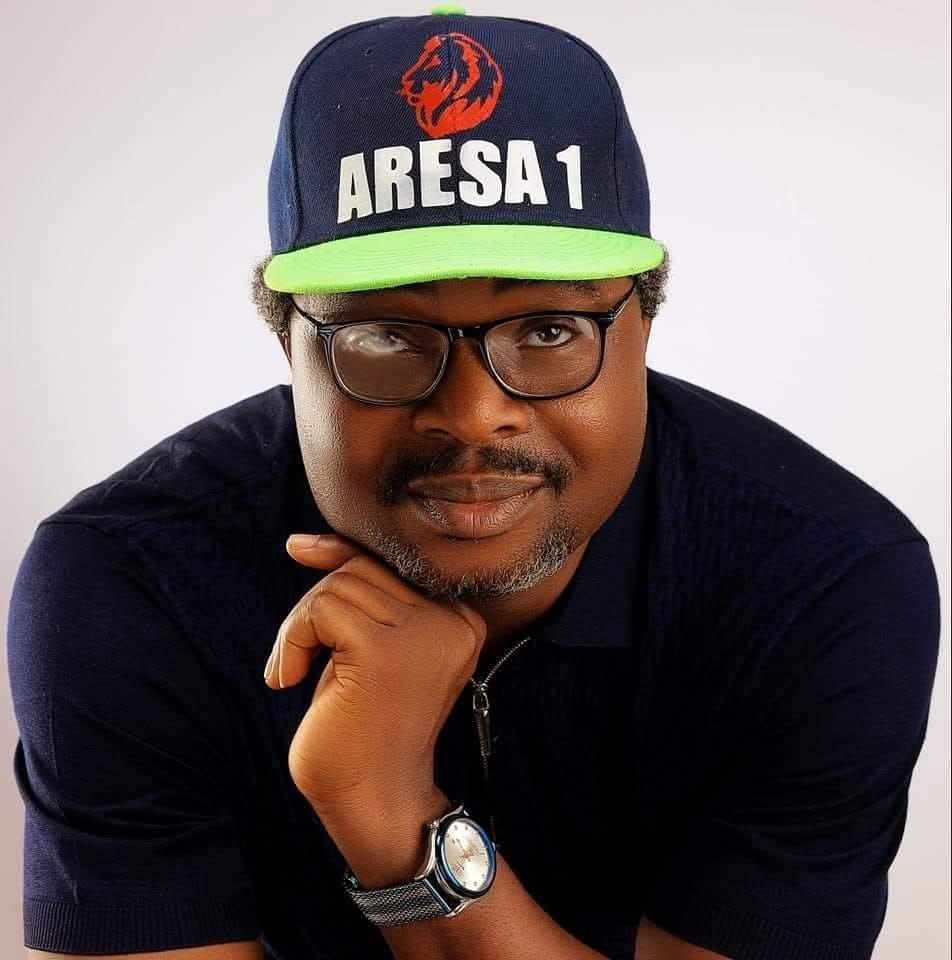
Lere Olayinka, the Senior Special Assistant on Public Communications and Social Media to the Minister of the Federal Capital Territory, FCT, Nyesom Wike, has branded the House of Representatives member from Ideato Federal constituency of Imo State, Ikenga Ugochinyere a liar.
Olayinka described Ugochinyere as a political Hushpuppi looking for a platform to practice his alleged nefarious activities.
He was reacting to the lawmakers call for the Peoples Democratic Party National Working Committee, NWC, to expel Wike and embattled National Secretary, Samuel Anyanwu from the party.
Ugochinyere had claimed that expelling Wike and Anyanwu as well as removing Umar Damagum as PDP National Chairman would end the crisis within the party.
Warning of an imminent danger, Ugochinyere had said: “Averting this imminent danger which will happen in a matter of days, the NWC must immediately rise up and summon an emergency meeting of the party with their simple majority which they already have with or without Damagum to expel Anyanwu who is the political traitor from the party and also rectify the removal of Damagum by appointing a North Central person as the substantive National Chairman of our party.”
But condemning the lawmaker’s claims, Olayinka said he will no longer be available for the PDP.
In a chat with Ekwutosblog, Olayinka said: “Ugochinyere is one of the lies and deceits of the PDP.
“A political hushpuppi who’s always looking for platform to practice his Yahoo Yahoo politics.
“Very soon, PDP will look for him and he will be nowhere available to the party.”
Politics
Tinubu’s reforms yielding positive results – APC State commissioners
Published
6 hours agoon
April 25, 2025By
Ekwutos Blog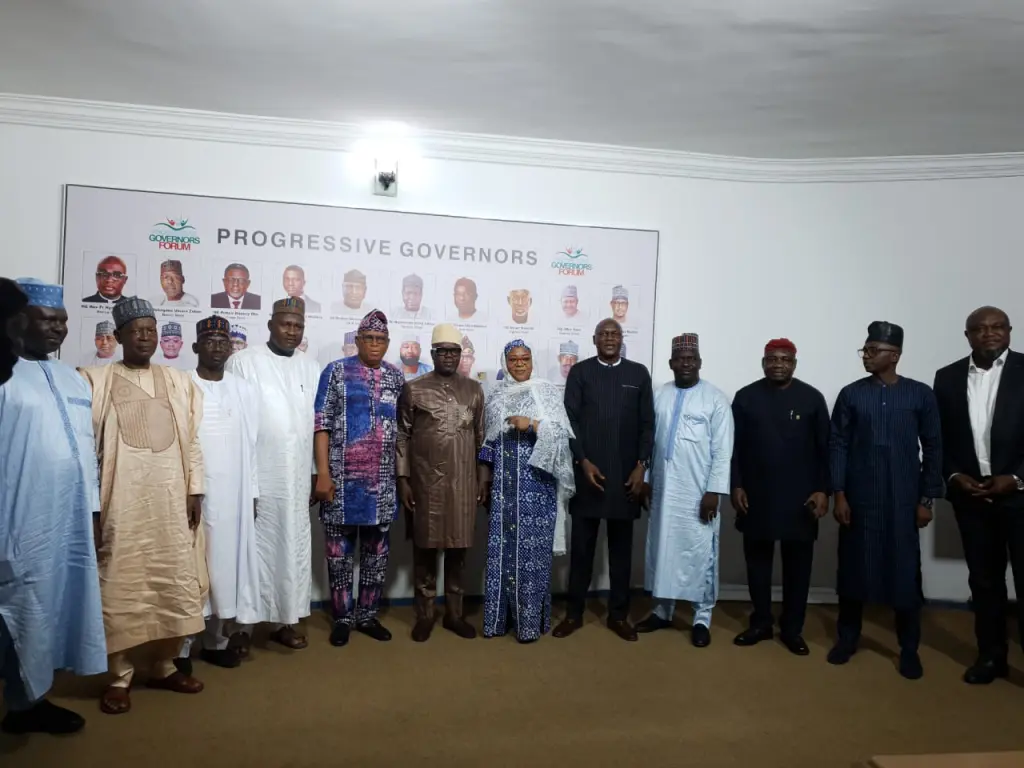
Commissioners for Information from All Progressives Congress (APC)-governed states have praised President Bola Tinubu’s administration for its bold and strategic reforms, describing them as foundational steps toward national development.
This commendation came during the Progressive Governors Forum (PGF) Quarterly Strategy Meeting, held April 24–25, 2025, at the PGF Secretariat in Asokoro, Abuja.
The gathering aimed to strengthen strategic communication, align state-level policies, and enhance democratic accountability within APC states.
The forum, organized under the PGF Secretariat and aligned with the Renewed Hope Agenda of the Tinubu administration, provided a platform for peer review, experience sharing, and harmonization of communication strategies.
In a communiqué issued at the end of the meeting, the commissioners expressed appreciation for the resilience and support of Nigerians amid ongoing economic reforms, assuring that positive outcomes are beginning to manifest.
They pledged unwavering loyalty to Progressive Governors and reaffirmed their commitment to transparency, accountability, and performance-based governance.
The forum also adopted the PGF National Value Reorientation Campaign, aimed at rebuilding public trust, fostering patriotism, and promoting responsible citizenship.
Commissioners resolved to domesticate the campaign in their respective states through strategic messaging, grassroots engagement, and inter-state collaboration.
They emphasized the importance of ongoing capacity building and the institutionalization of a quarterly APC States Communication Strategy Review Forum to reinforce these efforts.
Attendees included Gbenga Omotoso (Lagos), Sagir Musa Ahmed (Jigawa), Kayode Akinmade (Ogun), Kingsley Femi Fanwo (Kogi), Erasmus Ekpang (Cross River), Taiwo Olatunbosun (Ekiti), Binta Mamman (Niger), Ibrahim Tanko (Nasarawa), Ibraheem Musa (Kaduna), Sambo Bello Danchadi (Sokoto), Paul Ohonbamu (Edo), Yusuf Ali (Yobe), and PGF Director General, Folorunso S. Aluko.

BREAKING! India Orders All Pakistani Citizens To Leave Country

State Pension inheritance rule can boost payments by more than £5,000 – see if you qualify

Governorship Candidate of the Young Progressives Party (YPP) in Anambra State, Sir Paul Chukwuma has nominated Chief Uzuegbunam Okagbue, the former Chief Protocol Officer and Deputy Chief of Staff to former Gov. Willie Obiano as his running mate in the November 8, 2025 Anambra governorship election
Trending

 Trending6 months ago
Trending6 months agoNYA demands release of ‘abducted’ Imo chairman, preaches good governance
- Business6 months ago
US court acquits Air Peace boss, slams Mayfield $4000 fine

 Politics6 months ago
Politics6 months agoMexico’s new president causes concern just weeks before the US elections
- Entertainment6 months ago
Bobrisky transferred from Immigration to FCID, spends night behind bars
- Entertainment6 months ago
Bobrisky falls ill in police custody, rushed to hospital

 Politics6 months ago
Politics6 months agoRussia bans imports of agro-products from Kazakhstan after refusal to join BRICS

 Politics6 months ago
Politics6 months agoPutin invites 20 world leaders
- Politics1 year ago
Nigerian Senate passes Bill seeking the establishment of the South East Development Commission.

